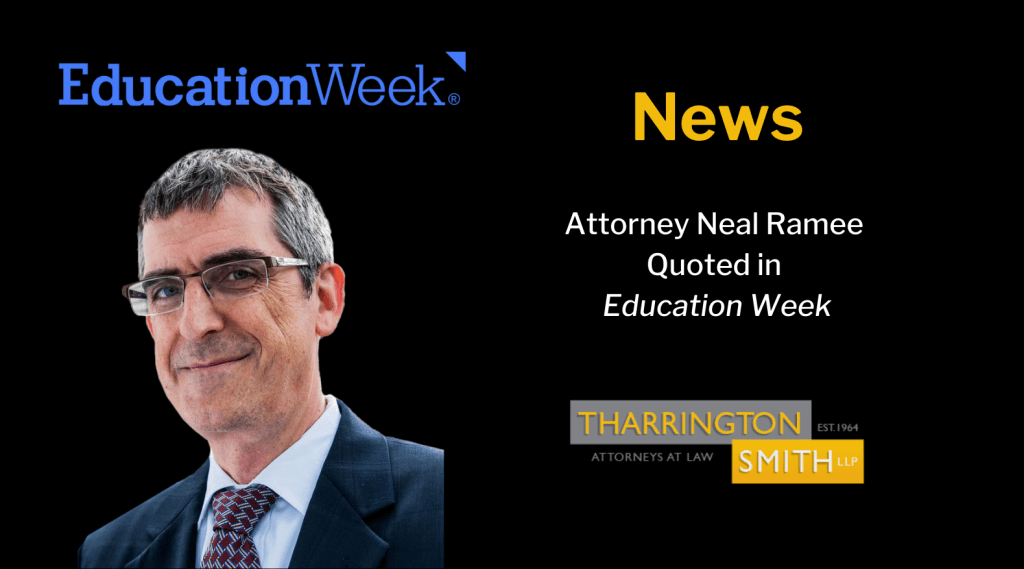Tharrington Smith Partner Neal Ramee was interviewed for Education Week regarding recent challenges to books in public school libraries. Mr. Ramee was quoted in the December 15, 2021, article regarding modern-day interpretation of historical Supreme Court precedent on challenges to books in public schools. Many public school systems throughout North Carolina rely upon Mr. Ramee and his colleagues in Tharrington Smith’s Education Law practice to help them navigate controversies over library books and other complex disputes. You can read an excerpt of the article below as well as read the full article here.
As Seen In Education Week: Yanking Books From School Libraries: What the Supreme Court Has Said, and Why It’s Murky
By Mark Walsh
Neal Ramee, a partner in a Raleigh, N.C., law firm with an education practice that advises school districts throughout North Carolina, has studied the finer points of the Pico case for years.
“There are a lot of different opinions out there about how to interpret Pico,” he said. “At a minimum, we know that intent [of school officials] matters and there is not an untrammeled right to remove books.”
Many educators would probably agree that now is a good time for dusting off a nearly 40-year-old Supreme Court decision if it offers any assistance in fending off the latest wave of book challenges. Across the country, some parents and lawmakers have called for the removal of long lists of “objectionable” books touching on race, sex, gender identity, and sexual orientation, among other topics.
Ramee, the North Carolina education lawyer, said lower courts have interpreted Pico in multiple ways. One federal appeals court, ruling in 2009 in a challenge to a book about Cuba in the Miami-Dade County, Fla., school system, held that “Pico is of no precedential value” to the First Amendment issues in the case.
But other courts have construed Pico to stand for the idea that school boards may not remove books because they dislike the ideas contained in them. For example, lower courts have overruled the removal of the Harry Potter books in an Arkansas district and a lesbian romance, Annie on My Mind by Nancy Garden, by a Kansas school board.
“The court did something” in Pico, said Ramee. “There aren’t five votes for the right for students to receive ideas. But there are five votes for a remand [for trial]. … Justice White at least thinks the state of mind and the motivation of the school board was relevant. So the logical inference is that school boards don’t have unlimited authority to remove books. Intent matters.”
“It’s frustrating that there isn’t more” to Pico, Ramee added. “But you can’t ignore it.”

